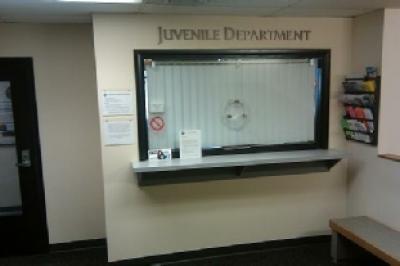WELCOME TO THE LINN COUNTY JUVENILE DEPARTMENT
It is our mission to provide for public safety by helping youth and families achieve positive change through education, skill building and community partnerships.
What is The Juvenile Justice System?
The juvenile justice system is the system in charge of dealing with juvenile crime. The juvenile system concentrates on holding youth accountable for their actions, keeping the public safe and repairing the harm done in the community. If your child has been contacted by the police they will not be treated exactly the same as an adult who has contact with the police.
Juvenile Justice Terms & Definitions
What does the Linn County Juvenile Department do?
The Juvenile Department is responsible for processing all law enforcement referrals involving juveniles in Linn County alleged to have committed criminal traffic, game, boating violations, non-criminal violations (alcohol and marijuana), misdemeanors and felony offenses. There are two divisions of the department providing a tiered approach from a Formal Accountability Agreement (Community Programs Unit), to the formal court process (Probation Unit) with graduated sanctions.
Who We Are:
The Juvenile Department staff is a team of highly trained professionals specializing in juvenile corrections. Staff members have backgrounds in adolescent and child development, mental health disorders, behavior disorders, cognitive skill development, sex offender behavior and treatment, fire setting behavior and treatment, gang behaviors and interventions as well as many other areas. A number of staff have specialized in certain areas receiving extensive training and have developed expertise in that area. The Department also has an on-site Probation Officer at the Albany High Schools and an Intervention Specialist working with youth at the Albany Middle Schools.
Risk-Based Focus:
The Linn County Juvenile Department delivers services consistent with the Balanced and Restorative Justice model of juvenile justice, meaning case response addresses community protection, accountability and competency development of the youth. Restorative justice is a cost-effective criminal justice approach that is based on reconciliation, restoration, healing and rehabilitation.
We utilize a risk-based model of service as a way to focus available resources on the population of youth offenders most likely to commit another crime. With the economic climate the way it is we must make sure the limited resources we have are focused on the most disruptive population. A supervisor assigns cases based on the youth’s criminal history, current offense and level of risk as identified on a validated risk assessment tool.
Youth whose case is handled "formally" through the court process, will be assigned a Probation Officer. Once a Probation Officer is assigned, they address the youth’s needs and criminogenic risk factors (risk areas that are most likely to lead to further delinquent acts). Youth which score High Risk on this assessment are further assessed with the Oregon Youth Authority Risk Needs Assessment, a more comprehensive assessment, used to develop a case plan identifying short and long term goals to reduce each identified risk factor. Probation Officers are responsible for preparing all court documents, including disposition reports, which include recommendations to the Judge and presenting cases to the Court. A youth found in violation of probation may be taken into custody by the Probation Officer who schedules the matter for a hearing and the court process starts over with the new charge of a probation violation.
Some youth cases are handled on an informal basis. Programs within the Community Programs Unit include Intake, Intervention, and Work Crew. Intake Probation Officers meet individually with youth and parents to determine the youth’s risk level and if the youth qualifies for the referral to be handled informally. Rather being placed on 'formal' probation through the Court system, youth are required to sign a 'Formal Accountability Agreement', which includes rules of supervision that must be obeyed, similar to a court order. If a youth chooses not to behave in a manner consistent with their FAA, they can be transferred to the Formal Probation Unit and subsequently be seen by a Judge. Having your case handled informally may allow for more options for expunction of your juvenile record, possibly spending less time on supervision, etc.
Every youth referred for a criminal act, and either admits or is found to have committed a crime following a hearing, is required to complete community service hours on one of three work crews. The crew that youth complete their hours on depends on the act and the youth’s risk score. Youth learn valuable work ethics and vocational skills while working on a crew and have even been able to use the work crew as a job reference on a resume. The Department has developed a special crew called the Experiential Work Crew, meaning the department provides an extra staff person who goes on the crews with the youth and provides life skills training throughout the day.
How do Youth come to Detention?
The Juvenile Department also operates a 20 bed juvenile detention center in partnership with Benton County, who pays part of the cost based upon the number of beds contracted each year, currently 4 beds for the ‘22-'23 fiscal year. The Linn-Benton Detention Center is located in a section of the larger Oak Creek Youth Correctional Facility operated by the Oregon Youth Authority serving females in need of long term incarceration.
There are three ways that youth come to detention; they can be placed by law enforcement officers under certain statutory requirements; they can be placed in detention by the Court as a result of a hearing, or placed there by a Probation Officer for a probation violation. A Probation Officer supervises all youth released from detention who are placed on a conditional release agreement. They may place youth back in detention if they are found to be in violation of a condition of their release agreement.

